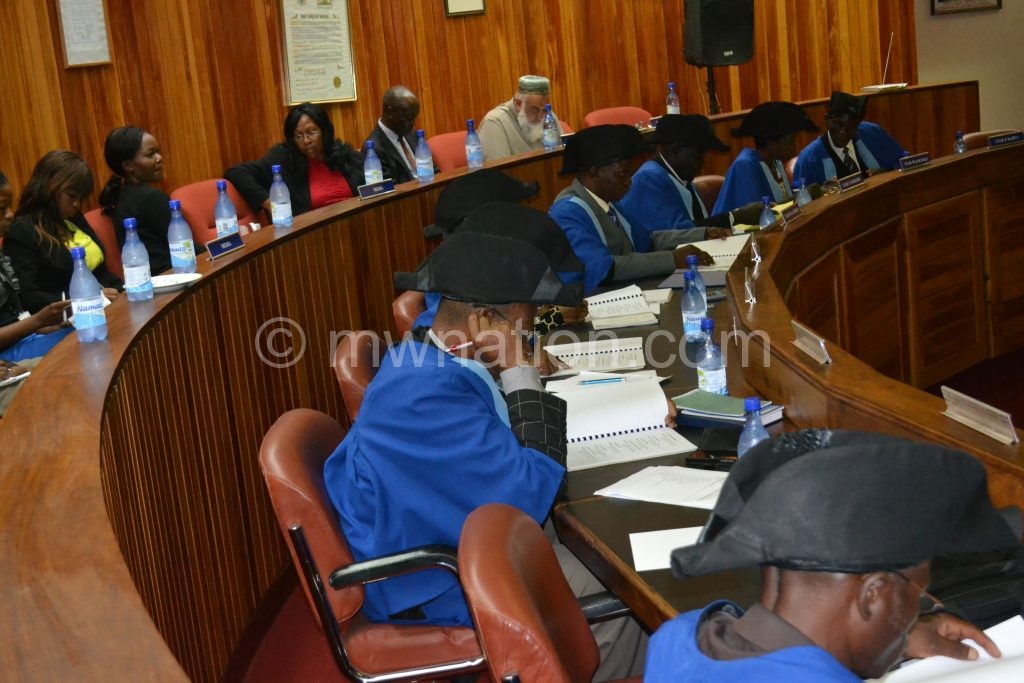Are women councillors ill-prepared for public service?
Malawi has over the past decades, ratified a number of treaties and protocols, which compel government to actively promote the welfare and development of women. Other campaigns are driven by non-governmental organisations (NGOs). Remember the 50/50 campaign?
Additionally, Section 13 (i) of the Constitution of Malawi also compels leaders to ensure the full participation of women in all spheres of Malawian society on the basis of equality with men.
To actualise this dream, government and civil society (CSOs) and non-governmental organisations (NGOs) have been working hard to create a conducive environment where women can successfully compete against their male counterparts.
Statistics indicate that women in Malawi constitute over 52 percent of the 17 million population, but for many years illiteracy and some cultural practices have put many women in a disadvantaged position.
Studies by the Hunger Project (Malawi) show that when women are supported and empowered, all of society benefits. Their families are healthier, more children go to school, agricultural productivity improves and incomes increase. In short, communities become more resilient.
The studies show a firm consensus that empowering women to be key change agents is an essential element to achieving the end of hunger and poverty. And it was based on this premise that prior to the 2014 Tripartite Elections, CSOs and NGOs initiated and implemented a number of activities to mobilise voters to change their mindset so that they begin to see the importance of rallying behind female candidates.
Sadly though, not many women candidates made it in their attempt at parliamentary as well as Local Government Election (LGE).
Inkosi Mzukuzuku Jere of Mzimba cites culture and religion as having contributed towards the dismal performance.
Mzukuzuku Jere admits that, from time immemorial, majority of local cultures and religious beliefs have denied women a space and right to assume positions of leadership in the society.
“The dismal performance of women candidates in the 2014 Tripartite Elections signifies that we have not fully embraced the principles of gender equality and women empowerment in our societies,” he says.
The chief further notes that majority of the female members of Parliament (MPs) in the previous Parliaments did not deliver thereby demotivating voters into entrusting women with public positions.
“In all fairness, majority of MPs in the previous Parliament did not deliver to the satisfaction and expectation of the voters. The voter felt betrayed and decided to vent their anger by denying the next candidate, which I feel, was unfortunate,” emphasises Mzukuzuku Jere.
Malawi Local Government Association (Malga) honorary secretary Reverend Moses Chimphepo seemed to agree with this line of thinking two weeks ago when he opened a three-day capacity building workshop and training for women councillors.
Chimphepo revealed that councils were having difficulties to formulate and implement gender-responsive budgeting in the present scenario where female councillors only play spectators in council meetings.
He was speaking at the training workshop which Malga had organised with funding from the United Nations Entity for Gender Equality and the Empowerment of Women (UN Women).
He explained: “As a DC (district commissioner), I observe women councillors would sit in the council the whole meeting without saying anything. So, how do you present your issues when you keep quiet? You’ve to say something for people to hear you.”
Chimphepo challenged the female councillors to be aggressive in demanding for the formulation and implementation of gender-responsive budgeting in their respective councils.
He said this is the only way they (councillors) can make themselves relevant to the councils as well as the wards they represent.
Chimphepo also declared that by keeping quiet throughout council meetings, women councillors are denying their communities representation.
But the honorary secretary was quick to point out that Malga notes the gaps and challenges preventing women from actively participating in the activities of their wards and councils.
“Capacity building is one of the problems, hence, we have organised this training to equip female councillors with public speaking skills that would, in turn, help them effectively argue on issues being presented at their councils,” he explained.
While agreeing with the two, Malawi Local Government Association (Malga) vice chairperson for the Women Caucus councillor Patricia Nkhono adds that women’s dormancy borders on lack of exposure and cultural backgrounds.
Nkhono says the Caucus is currently lobbying various organisations to help it intensify initiatives to equip women councillors with public speaking skills.
“When you see female councillors or MPs keeping quiet throughout the discussions, it’s not a sign that they do not have something to say. But the way to present it is their major challenge.
“Therefore, the first step should be to equip them with public speaking skills. All they need is self-confidence for them to actively participate and contribute in council discussions and meetings,” she says. n





